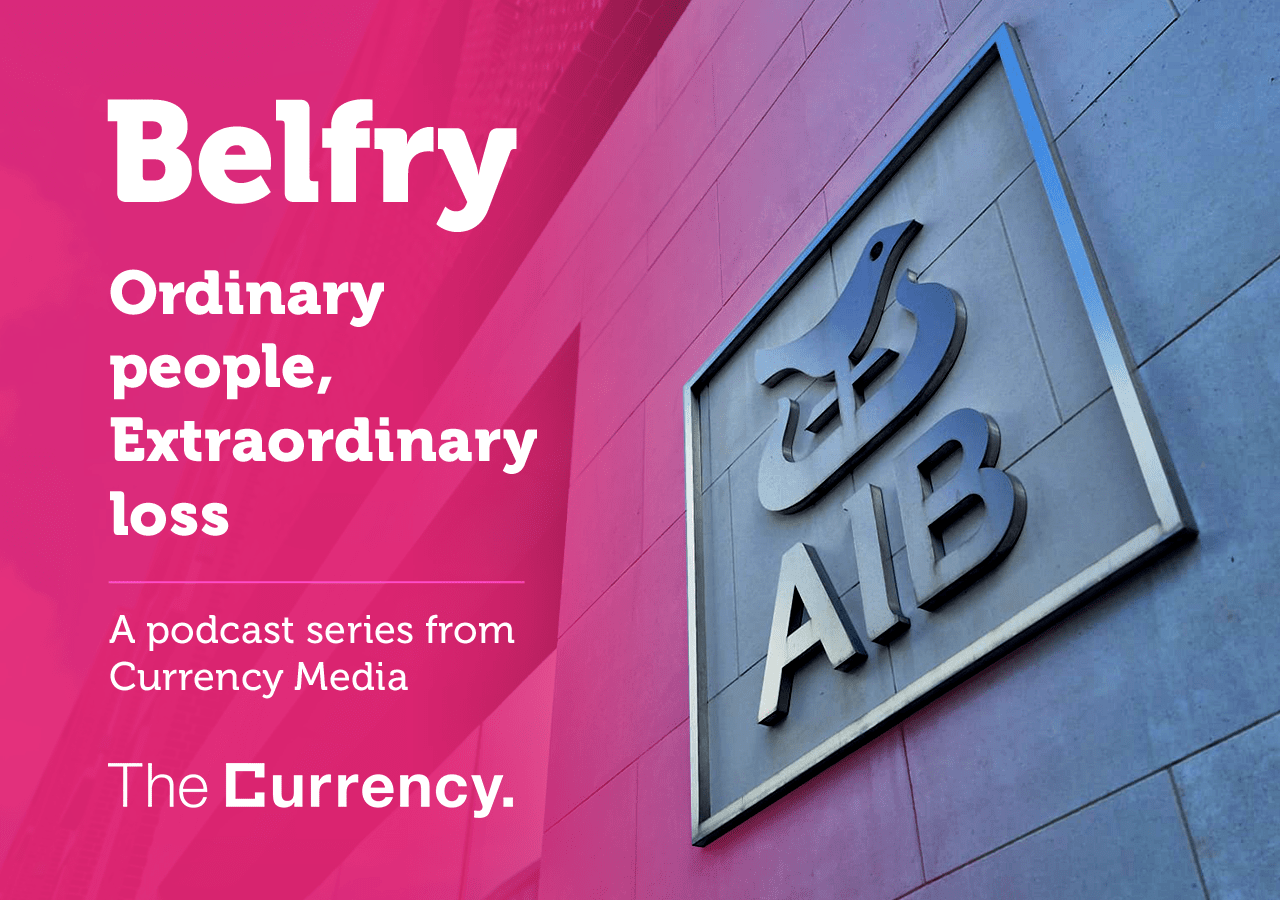Fifteen years after thousands of investors lost their savings in AIB’s speculative Belfry property funds, the bank’s long-awaited redress scheme promised justice.
Instead, it reopened old wounds.
Part two of Belfry, Currency Media’s investigative podcast series, picks up the story where part one left off — at the end of a marathon court battle that saw AIB agree a €25 million settlement with hundreds of investors who, in return, dropped claims of mis-selling against the bank.
Then came a surprise mea culpa. In 2021, AIB launched a wider compensation scheme for the circa 2,500 investors stung by the collapse of the highly geared UK commercial property funds. It agreed to a case-by-case review of every Belfry investment and offered an internal or external appeals process for customers dissatisfied with the outcome.
Around a quarter of a billion euro was paid out. But beneath this headline gesture of accountability, the redress process became a new battleground.
Investors who claim they were not made aware of how risky the Belfry funds were now found themselves at the mercy of an opaque set of rules drawn up by the bank’s own agents, with little apparent oversight from the Central Bank.
Divided into winners and losers, some customers prevailed while others in the same boat received nothing. Conor Sheahan of CKS Finance, chief executive of the independent advisory firm that has assisted Belfry investors, puts it succinctly in the podcast: “Two brothers, same night, same kitchen, same paperwork. One gets refunded, one doesn’t.”
How to explain the apparent contradiction?
Unfortunately, the result is about more than confusion. Around 600 investors, many around retirement age, now find themselves massively out of pocket and locked out of redress with almost nowhere left to turn.
AIB told The Currency its redress scheme checked “investors’ investment objectives, experience and financial position were appropriately aligned to investing in the Belfry funds” and added: “where we got things wrong we have written to investors apologising and offering them redress and compensation”.
Having already forked out close to €250 million in redress, Sheahan estimates that another €60 to €75 million would pay off the remaining investors and put the Belfry debacle to bed for good.
But AIB has declared the matter closed. Chief executive Colin Hunt told the Oireachtas finance committee as far back in 2023 the bank is keen to draw a line under legacy issues, like the scandal of the Belfry funds.
It is not that it can’t afford the hit. The bank is a world away from the financial crash that tore down the Belfry property scheme, and the ensuing crisis that prompted the State to inject €20.8 billion of taxpayers’ money into the lender as part of a wider bailout of the sector.
Last June, AIB shook off the last vestiges of public ownership. Delivering stellar billion euro annual profits, the lender has achieved a remarkable turnaround and is once again fully back in private hands and on course to deliver its first interim dividends since 2008.
It is more that a new chapter awaits the bank. And that means closing the door on remembering and the past.
But on whose terms and at what cost to ordinary investors?
See also: Part one – A podcast series that investigates one of AIB’s darkest chapters


